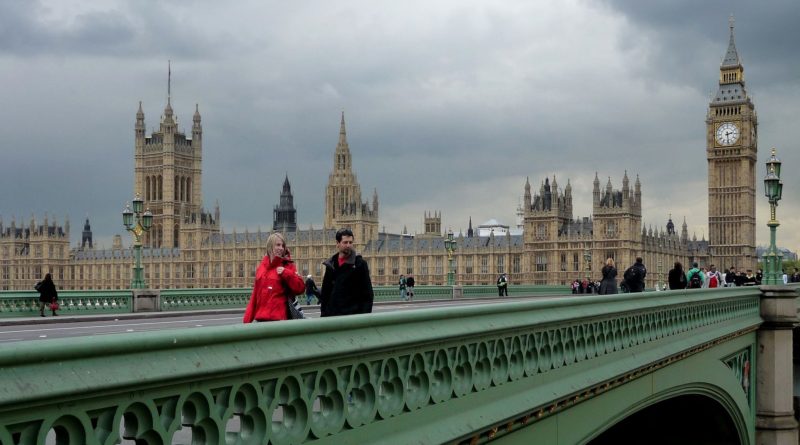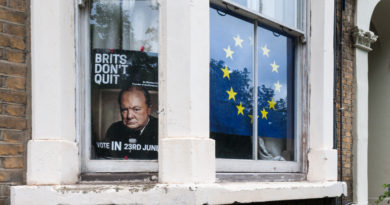Green light to Brexit from the House of Commons, what next?
The House of Commons approved this week the bill allowing the British Prime Minister to trigger Article 50 of the EU Treaty and start the Brexit process. The bill passed on February 8th with 494 votes to 122. None of the amendments went through, so the bill was adopted without any changes. An amendment on protecting the rights of EU citizens living in the UK was also defeated with 332 votes to 290. What happens next regarding the rights of expatriates? Joe Owen, Researcher at the Institute for Government, a British think tank looking at Brexit, explains.
Was the result of the vote expected?
“The government is probably relieved that the bill has gone through without amendments. But in some of the big issues, like parliament scrutiny of the Brexit process or the rights of EU nationals in the UK, the vote was close. This suggests that the parliament is still quite divided on the details of Brexit and there may be challenges in the long term.”
What happens next?
“On February 20th the bill will go to the House of Lords. The Lords are not expected to block it, but some of the conversations held in the Commons may be revisited. If so, there may a ping-pong between the two Houses.”
Assuming the House of Lords passes the bill, the following step will be the letter by which the UK government notifies the EU of the intention to leave the bloc. This is likely to happen at the European Council on March 9th. Could the letter include specific details on expatriates?
“It will be up to the government to decide what they would like to add to the notification. In her speech of January 17th, Theresa May said securing the rights of EU citizens is on top of the agenda and should be dealt with early in the negotiations. But even if an early settlement of the issue is proposed, the talks unlikely to start until summer.”
At this point, how realistic is it that the British government will make a unilateral commitment on the status of EU nationals in the UK?
“It is hard to say. Ultimately it is a decision for the government to make and they are sensitive to secure also the rights of UK nationals living abroad.”
What role will the UK parliament have in the Brexit negotiations?
“This has been a topic debated in the Article 50 bill process. At the top level, the parliament is involved in approving the Article 50 bill and Theresa May promised a vote on the final Brexit deal. The government also promised to publish a Great Repeal white paper and assured parliament it will have a say in determining future immigration and customs policies. It is not yet clear what regular information Member of Parliament will receive in terms of updates as talks progress. Members of the European parliament, for example, are often allowed to view documents in secure reading rooms, this is one option open to the government.”
What is the Great Repeal Bill and how will it be approved?
“The Great Repeal Bill will convert existing EU legislation into domestic law once the UK leaves the EU. This ensures legal certainty and allows the parliament to decide what to maintain, repeal or adapt in the future. The Great Repeal Bill will be introduced in the next parliamentary session, which could be as early as May 2017. Some areas will require significant policy decisions, but government departments have spent the last few months understanding where these difficult decisions are and the options for resolving them.”
In a letter sent to some MPs on February 6th, the Home Secretary wrote: “The Great Repeal Bill will not change our immigration system. This will be done through a separate Immigration Bill and subsequent secondary legislation so nothing will change for any EU citizen, whether already resident in the UK or moving from the EU, without parliament’s approval.” What will be at stake then?
“As the UK prepares for life outside the EU, when it comes to immigration it will have to determine first what checks people will face when arriving in the country. There are 15 million people from outside the European Economic Area entering the UK each year, and 35 million from the EEA. Changing the system will involve discussing the amount of checks to apply and the capacity required to implement them. Secondly, there is the question of how to provide residency rights to the 3 million EU nationals already in the country, with the opportunity to improve the system. Finally, there is the issue of longer-term work permit policies and how to enforce them. These are separate but related matters and some of them will be more urgent than others.”
The procedure in Brussels
As regards the European Union, once Article 50 is triggered negotiations will be led by former EU Commissioner Michel Barnier and his team at the European Commission. The European parliament also appointed a chief negotiator, Guy Verhofstadt, former Prime Minister of Belgium and President of the Alliance of Liberals and Democrats for Europe. A note on the European parliament website explains that the parliament’s negotiating position will be shaped by the constitutional affairs committee, which will gather views from other committees according to their areas of competence. The position will be adopted before the EU27 start negotiating. Whilst the European parliament has no formal role within the Brexit negotiation process, the EU Council needs its consent before it can conclude the withdrawal agreement.
Claudia Delpero © all rights reserved.
Photo: Palace of Westminster by Grace Kelly (Own work) [CC BY-SA 3.0] via Wikimedia Commons.







Next is hell…